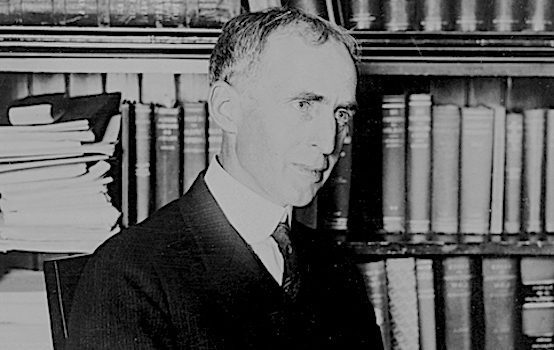The historian who believes that economic interests write history: Who is Charles Austin Beard?
One of Beard's most important contributions to American social science is his analysis of social events with an emphasis on economic interest.

(1874-1948) American historian. He is best known for his research emphasizing the role of economic interests in American history. Born on a farm near Knightstown, Indiana on November 27, 1874, he died on September 1, 1948, in New Haven. He was the son of a wealthy family. He graduated from De Pauw University in Indiana in 1898. During the 1890s he was the editor of his father's newspaper, the Knightstown Banner. After graduating from university, Beard went to Chicago, where he closely followed the life of the people at Hull House, an institution where liberal and radical intellectuals engaged in the education of the poor.
Charles Austin Beard (1874–1948) was an American historian and professor, who wrote primarily during the first half of the 20th century. A history professor at Columbia University, Beard's influence is primarily due to his publications in the fields of history and political science.
In 1900 he married Mary Ritter, with whom he would later jointly write many of his works. He also contributed to the founding of Ruskin Hall, a workers' school at the same time. Beard, who received his doctorate from Columbia University in 1904, was a lecturer at the same university until 1917. In 1917 he defended the right of university professors to criticize the government's war policy and resigned to denounce the expulsion of some faculty members on charges of subversion.
He withdrew from academia after 1917 and was never again associated with the university, except for his work at the New School for Social Research. During the remainder of his life, he wrote over sixty books and some three hundred articles on his farm near New Milford, Connecticut.
One of Beard's most important contributions to American social science is his analysis of social events with an emphasis on economic interest. He rejected the liberal doctrine in the economic field, foresaw a democratic central planning policy, and advocated approaching the history of the United States by investigating the economic motives behind the facts. In his first important work, An Economic Interpretation of the Constitution of the United States, he evaluated the properties of the founders who drafted the Constitution, arguing that each of these founders benefited personally from the establishment of the new order.
Beard further developed this approach in his Economic Origins of Jeffersonian Democracy. In his book The Rise of the American Civilization, co-authored with his wife, Mary Beard, he described the American civil war as the "second American Revolution" and interpreted the real cause of the civil war as the conflict of interest between Northern capitalists and Southern slaveholder landlords rather than the slave problem.
Beard expressed his views on the method of historical science in a speech he gave when he was elected president of the American Historical Association in 1933. According to Beard, the claim to objectivity in historical studies is a "noble fantasy". Historical knowledge is inevitably limited to the subjectivity of the historian, and that subjectivity can only make sense when it is on the side of social change.
Beard's approaching World War II in the 1930s. In World War II, he advocated for the United States to remain neutral and not intervene in Europe. Beard, who held President Roosevelt responsible when the USA entered the war, explained his views on this issue in a polemical way in his book President Roosevelt and the Corning of the War, 1941. He died on his New Haven farm on September 1, 1948, the year his book was published.
WORKS (mainly):
- The Industrial Revolution, 1901,
- An Economic Interpretation of the Constitution of the United States, 1913,
- The Economic Origins of Jeffersonian Democracy, 1913,
- Rise of American Civilization (with Mary Beard), 2 vols, 1927,
- American Foreign Policy in the Making 1932-1940, 1946,
- President Roosevelt and the Corning of the War 1941, 1948.
